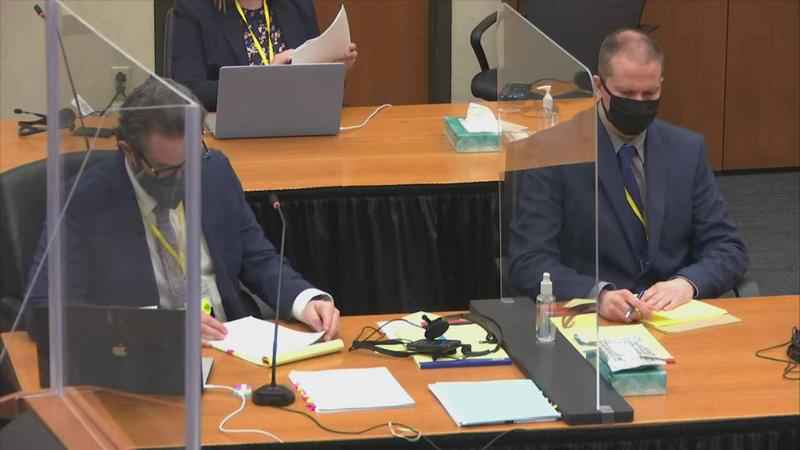Explanation of the charges in the State vs. Chauvin trial

In this image taken from video, defense attorney Eric Nelson, left, and defendant former Minneapolis police officer Derek Chauvin on March 11, 2021[Court TV]
The trial for former police officer Derek Chauvin — who is charged in the May 25, 2020, death of George Floyd — is underway.
Chauvin is already facing a second-degree unintentional murder charge and a manslaughter charge. He has pleaded not guilty to those charges. Thursday, Judge Peter Cahill granted the request from prosecutors of the case to reinstate a third-degree murder charge against Chauvin.
Here is a breakdown of charges now filed in the State vs. Derek Chauvin case:
SECOND-DEGREE MURDER
Minnesota Statute: 609.19.2(1)
To convict on this felony-level charge, prosecutors must prove either that the act was pre-planned or that other major crimes were committed with it, among other things. Second-degree murder in Minnesota can be "intentional" or "unintentional," the latter being the charge Chauvin faces. In Minnesota, it is punishable by up to 40 years in prison if convicted. In this case, this charge requires prosecutors to prove Chauvin caused Floyd’s death while committing or trying to commit a felony — in this case, third-degree assault. Prosecutors don’t have to prove that Chauvin was the sole cause of Floyd’s death — only that his conduct was a "substantial causal factor."
THIRD-DEGREE MURDER
To convict on this felony-level charge, prosecutors would have to show only that Floyd’s death was caused by an act that was obviously dangerous, though not necessarily a felony. In Minnesota, this charge is punishable by up to 25 years in prison.
SECOND-DEGREE MANSLAUGHTER
This felony-level charge carries a maximum prison sentence of 10 years in Minnesota. In this case, it requires proof that Chauvin caused Floyd’s death through negligence that created an unreasonable risk, and consciously took the chance of causing severe injury or death.
A TIMELINE OF CHARGES FILED
Days after Floyd’s death, Chauvin was charged with third-degree murder and second-degree manslaughter. Then, on June 3, Minnesota Attorney General Keith Ellison added a second-degree murder charge against Chauvin. A legal challenge over the third-degree charge ensued, resulting in the district court reinstating that charge on March 11.
ADDITIONAL NOTES
Chauvin has no prior criminal history, which could determine the actual sentence he could serve if convicted.
Three other former officers who were present when Floyd died will face trial later this year.
The Associated Press contributed to this report.
KSTP’s complete trial coverage